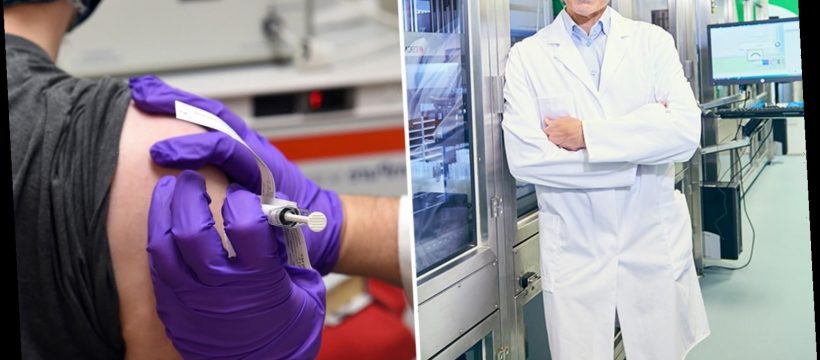A SCIENTIST behind a landmark coronavirus vaccine has said he expects life to be back normal next winter.
Professor Ugur Sahin, co-founder of BioNTech, who developed the vaccine alongside Pfizer, said he expects the first significant impacts of the jab will be felt in the summer months.
⚠️ Read our coronavirus live blog for the latest news & updates
He continued that as coronavirus vaccination plans then continue into the autumn it is likely life will then finally be back to the way it was before the pandemic.
The scientist however warned the next few months are still going to be tough and the first wave of the vaccine while likely not have a large impact on cases and deaths.
Britain is expected to get 10million doses by the end of the year, with another 30million doses already on order from the firm.
Older people and care home staff will be expected to get the vaccine first, followed by health care workers and then other over-80s.
It is then expected the rest of the population will get the vaccine in order of risk groups likely determined by age.
Pfizer announced last week their vaccine is 90 per cent effective after testing involving 43,000 people.
Prof Sahin told the BBC he believes the vaccine can reduce transmission and stop symptoms of the killer virus.
He said: "I'm very confident that transmission between people will be reduced by such a highly effective vaccine – maybe not 90% but maybe 50% – but we should not forget that even that could result in a dramatic reduction of the pandemic spread."
The scientist added: "What is absolutely essential is that we get a high vaccination rate before autumn/winter next year, so that means all the immunisation, vaccination approaches must be accomplished before next autumn.
"I'm confident that this will happen, because a number of vaccine companies have been asked to increase the supply, and so that we could have a normal winter next year."
Prof Sahin said the goal is deliver more than 300million doses of the vaccine worldwide by next April.
He said it was key that all immunisation programmes are completed before next autumn to avoid another bleak winter.
Winter is known to fuel the spread of the virus as people spend more time indoors.
And it also sees health workers put under pressure as they have to deal with the virus along with other seasonal conditions.
He told The Andrew Marr Show: "This winter will be hard. So we will not have a big impact on the infection numbers with our vaccine this winter,
"If everything continues to go well, we will start to deliver the vaccine end of this year, beginning next year."
Much of Britain remains in lockdown as the government desperately tries to suppress the virus and protect the NHS.
It comes as Britain's coronavirus death toll surpassed 50,000 this week, while other statistics suggest the true figure could be more than 65,000.
Prime Minister Boris Johnson urged everyone who is eligible to "definitely" get a coronavirus vaccine, when one becomes available.
He said he would have "no inhibitions" about getting a vaccine himself as he dismissed the baseless arguments of the so-called anti-vaxxers as "total nonsense".
Mr Johnson said every death from the disease was a tragedy and that while the prospects of a vaccine and mass testing offered hope, it was essential people continued to observe social-distancing rules.
"We have two boxing gloves to pummel the disease in the weeks and months that follow," he said.
"But I have got to stress that we are not out of the woods yet. It does require everybody to follow the guidance."
Professor Jonathan Van-Tam, the deputy chief medical officer for England, said they were preparing for the most important vaccination programme "in decades".
Ministers have said they do not expect the mass roll-out of a vaccine to begin until next year.
Downing Street said that it would not be made available until the regulator, the Medicines and Healthcare products Regulatory Agency (MHRA), was satisfied that it was safe.
"Any vaccines which are determined for use will undergo a vigorous series of safety checks, they will be absolutely safe for the public to use," the Prime Minister's official spokesman said.
Dr June Raine, the MHRA chief executive, said there was "absolutely no chance" it would compromise on standards of safety or effectiveness when it came to a coronavirus vaccine.
Prof Van-Tam said a vaccination programme would target those groups at the highest risk from the disease first.
With ministers warning it will require a "colossal" effort by the NHS, supported by the armed forces, he said he would be willing to pitch in and help administer jabs himself.
"This is one of the most important, if not the most important, vaccination programme we've done for decades," he said.
"And from that perspective, I don't mind telling you, I've had the conversation at home."
Source: Read Full Article







